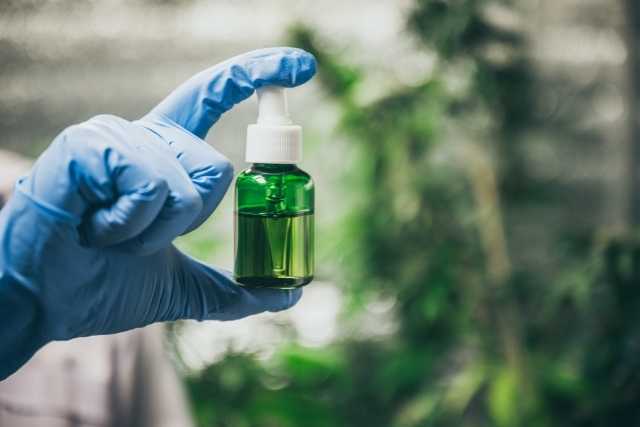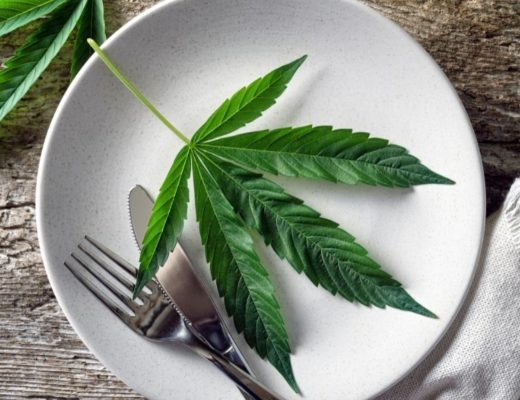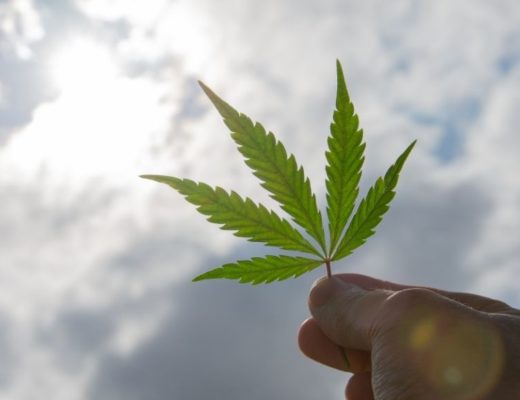Right now, Delta-8 THC is making waves in the cannabis industry. Interest in this lesser-known cannabinoid has accelerated, and now everyone is talking about it.
Now you might be wondering, what exactly is Delta-8 THC, where does it come from, and what does it do differently than regular THC?
To find out the answers to these questions, join us as we explain everything you need to know about Delta-8 THC.
History of Delta-8 THC
Probably this is the first time you’re hearing about Delta-8 THC. However, researchers have known about Delta-8 THC since 1941.
Unfortunately, due to cannabis prohibition, nothing was known about Delta-8 THC until the 1970s. In one of the first studies of Delta-8 THC, scientists found nothing but positive effects from it.
Despite the positive news, Delta-8 THC would remain obscure for decades. Luckily, Delta-8 THC is stepping out of the shadows and making a comeback.
How Is Delta-8 THC Different From Regular THC?
The THC that we’re all familiar with is actually called Delta-9 THC. Delta-8 THC is different from Delta-9 THC because of an atomic difference.
Basically, the chemical structure of Delta-8 THC is different from Delta-9 THC. If you remember chemistry class, then the double-bond is on the 8th carbon instead of the 9th, like in regular THC.
If you don’t remember chemistry class, then don’t worry too much about it. The important thing to know is that they’re barely different on a physical level.
However, that tiny change in structure leads to a significant difference in effects. That’s because Delta-8 THC is much less psychoactive than regular Delta-9 THC.
Delta-8 THC users and enthusiasts describe it as THC-light.
How Is Delta-8 THC Made?

In a nutshell, Delta-8 THC is made as a by-product of Delta-9 THC degradation. That means that Delta-9 THC turns into Delta-8 THC because of damage, exposure to sunlight, or age.
After cannabis buds are harvested, there’s usually a tiny percentage (less than 1%) of Delta-8 THC cannabinoids present. Unfortunately, there isn’t any way to make a high Delta-8 THC strain because it comes from degraded Delta-9 THC.
So how are there Delta-8 THC distillate products available? That’s because there are two ways to make Delta-8 THC.
The first is through natural extraction. Extractors use a lot of aged weed to extract the Delta-8 THC from it.
However, the most popular method is to produce it from CBD. Basically, producers will make Delta-8 THC by exposing CBD to various chemicals.
Delta-8 THC and the Endocannabinoid System
To understand how Delta-8 THC works, we need to understand the endocannabinoid system (ECS). In a nutshell, the ECS is a complex system of receptors found all around the body—from neurons in the brain to immune cells.
The ECS’s job is to make sure that the body stays in homeostasis. That means that if we get injured or feel ill, the ECS kicks in to try and bring us back to normal.
That’s why cannabis can have so many different effects like supporting pain relief, good sleep, a healthy appetite, and much more.
The ECS is composed of two different types of receptors—CB1 and CB2. CB1 receptors are found mainly in the brain and in the nervous system.
CB2 receptors, on the other hand, are found mostly in the immune system. So what does this all have to do with Delta-8 THC?
Like regular Delta-9 THC, Delta-8 THC can interact with the CB1 receptors. When Delta-9 THC interacts (or connects) with the CB1 receptor, we get the feeling of being high.
The thing is, Delta-8 THC doesn’t ‘connect’ perfectly with the CB1 receptor like Delta-9 THC. That’s likely due to that tiny structural difference we mentioned earlier.
What ends up happening is that the high feeling we get from Delta-8 THC is much weaker. However, that’s not a bad thing because sometimes less is actually more.
Potential Benefits of Delta-8 THC
The fact that Delta-8 THC is much weaker but has the same effects as Delta-9 THC may actually be its strength. That’s because Delta-9 THC can often be way too overwhelming.
You probably remember a time when you’ve gotten way too high on Delta-9 THC. Being too high on Delta-9 THC can cause increased anxiety, paranoia, and a general feeling of unwellness.
Many people use cannabis because it’s supposed to relieve anxiety. However, Delta-9 THC ends up doing the opposite at higher doses and can cause anxiety to skyrocket.
Furthermore, some people don’t like the overwhelming feeling of being high but need the benefits of Delta-9 THC. Many medical cannabis patients use Delta-9 THC to help relieve pain and inflammation, increase appetite, and stop nausea.
That’s where Delta-8 THC comes in. Even though Delta-8 THC feels weaker, it still has the same benefits as Delta-9 THC. One study found that when cancer patients used Delta-8 THC, they stopped vomiting after chemotherapy.
On top of that, researchers also discovered that Delta-8 THC may be able to relieve inflammation and pain like Delta-9 THC.
However, there are no scientific studies that prove that Delta-8 THC can relieve anxiety. Many users online claim that Delta-8 THC provides a much more clear and relaxing high that doesn’t lead to anxiety.
Does Delta-8 THC Live up to the Hype?
Now you might be wondering, is Delta-8 THC the next big thing or just another passing fad? It’s difficult to say because it seems like there are some real benefits to Delta-8 THC.
On the other hand, there are some safety issues regarding how Delta-8 THC is made. Many producers and low-quality labs will cut corners and fail to remove all of the chemicals from the Delta-8 THC conversion or extraction process.
If you’re going to try Delta-8 THC, our advice is to only buy it from a trusted and reputable source. Make sure that the Delta-8 THC product is lab tested and has verifiable results.
If you want to stay cautious, then perhaps it’s best to stick with CBD and THC products—for now.





No Comments